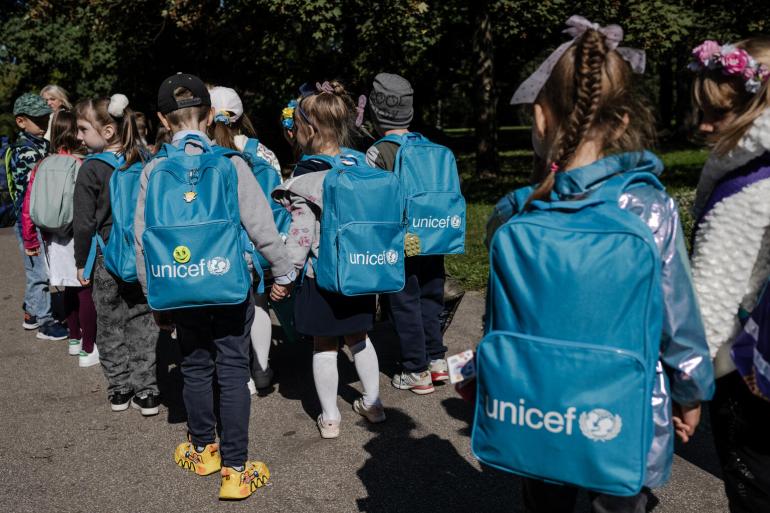
GENEVA, Aug 29, 2023 (BSS/AFP) - Years of disrupted schooling have left Ukrainian children struggling to learn language, maths and reading skills in the wake of the pandemic and Russia's invasion, the United Nations warned Tuesday.
Youngsters within the country and refugees forced to flee abroad are now facing a fourth straight year of disruption, the UN children's agency, UNICEF, said, as the school year begins in Ukraine.
Continued attacks on education inside Ukraine and low-level enrollment in refugee-hosting countries have left many of Ukraine's 6.7 million three-to-18-year-olds struggling to learn, said Regina De Dominicis, UNICEF's regional director for Europe and central Asia.
They are showing signs of widespread learning loss, including a deterioration in Ukrainian language skills, reading and mathematics, she said after visiting the country.
"Inside Ukraine, attacks on schools have continued unabated, leaving children deeply distressed and without safe spaces to learn," De Dominicis said.
"Not only has this left Ukraine's children struggling to progress in their education, but they are also struggling to retain what they learnt when their schools were fully functioning."
UNICEF cited survey data which found around half of teachers reporting a deterioration in students' Ukrainian language proficiency, mathematics skills and foreign language abilities.
And it said enrollment data showed only one third of children were learning fully in-person, with a third learning completely online and the remainder through a mixed approach.
UNICEF said online learning could help in the short-term but was not a proper long-term replacement for in-person teaching, considered critical for social development.
The agency cited national survey data showing that two thirds of pre-school-age children were not attending, rising to three quarters in frontline areas.
- Schools' crucial wartime role -
UNICEF said Ukrainian refugee children were facing another uncertain academic year, with more than half not enrolled in national education systems across seven host countries, citing language barriers, difficulty in accessing school and overstretched education systems.
While some may be attempting to study online, "some refugee children may have completely abandoned their education", the agency said.
"In times of crisis or war, schools provide far more than a place of learning," said UNICEF.
"They can provide children who have already endured loss, displacement and violence with a sense of routine and safety, a chance to build friendships and get help from teachers."
They can also provide access to nutrition, vaccines and support services, it added.
UNICEF said it was working with partners in Ukraine and host countries to help increase access to quality learning, including through rehabilitating schools and providing catch-up classes.
It has a target of supporting 300,000 children at risk of learning losses in Ukraine over the coming school year.